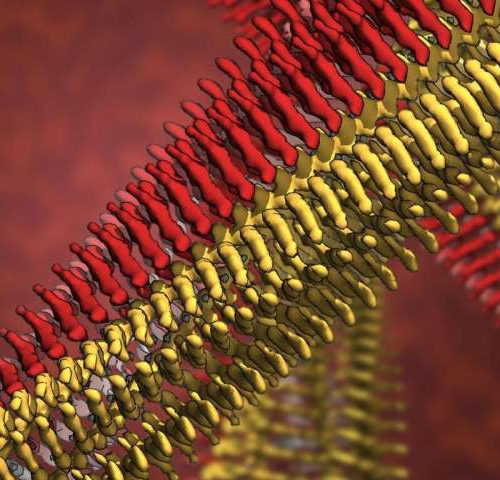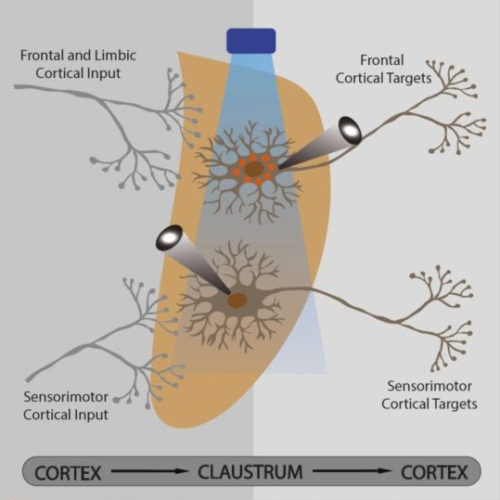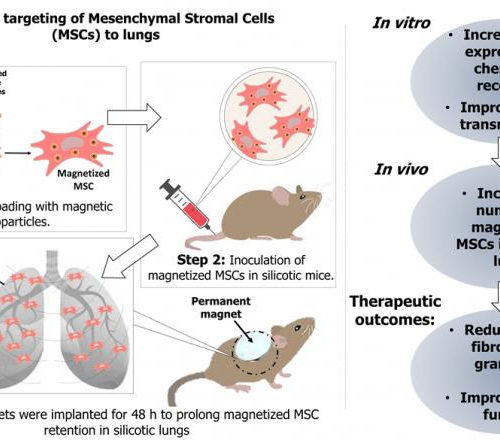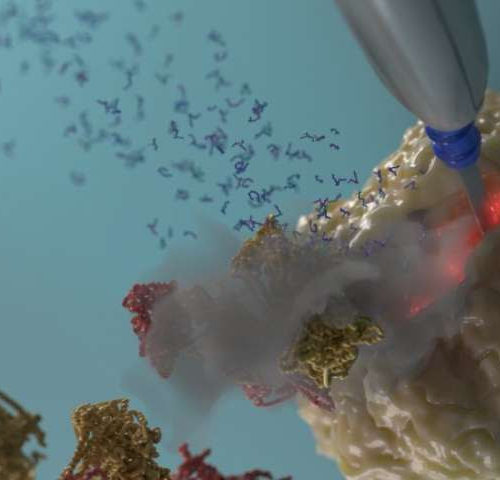Genetic screening for prostate cancer in GP surgeries could be effective at picking up otherwise undiagnosed cases of the disease, a new pilot study shows. Researchers ‘barcoded’ men for their genetic risk of prostate cancer by testing each for 130 DNA changes – and gave those at higher risk follow-up checks. Their study found that...
Tag: <span>biology</span>
CANCER AND CHEMO TEAM UP TO MAKE NEUROPATHY WORSE
Contrary to common medical guidance, chemotherapy does not appear to be the only culprit in neuropathy, a neurological side effect of cancer treatment, according to a new study in rats. Cancer itself contributes heavily, too, and the stresses on neurons appear far worse than the sum of the two causes. “There was some distress caused...
Two new, powerful small molecules may be able to kill cancers that other therapies can’t
Using human cell and mouse models, City of Hope scientists demonstrate that the cancer inhibitors they’re developing could destroy acute myeloid leukemia and tumors from brain, pancreatic and breast cancers PRINT E-MAIL DUARTE, Calif. — City of Hope scientists have identified and developed two potent small molecules that appear to suppress tumor growth in multiple...
New indication of a link between Alzheimer’s and diabetes
by Forschungszentrum Juelich Pathological protein clumps are characteristic of a series of diseases, such as Alzheimer’s disease, Parkinson’s disease, and type 2 diabetes. Scientists at Forschungszentrum Jülich, Heinrich Heine University Düsseldorf, and Maastricht University have now used cryo-electron microscopy to obtain a sharp image for the first time of how individual molecules are arranged in...
New findings redefine organisation of the claustrum
Researchers from Karolinska Institutet and Nanyang Technological University (NTU) in Singapore have found that the claustrum is organized into functional connectivity modules rather than a hub-like structure, which up until now, was the prevailing idea. The study was recently published in Current Biology. “We found that the synaptic connectivity between the cortex and claustrum is...
Magnetic guidance improves stem cells’ ability to treat occupational lung disease
Durham, NC – Results of a study released today in STEM CELLS Translational Medicine(SCTM) may point the way to a cure for a serious lung disease called silicosis that affects millions of workers worldwide. Silicosis results from years of breathing in dust microparticles of silica by workers in professions such as construction and sand blasting....
Skin cancer: men are genetically more prone
As COVID-19 restrictions loosen this summer, Canadians will spend more time outdoors and make the most of the sunshine. A new study from McGill University suggests why men may be more genetically prone to develop skin cancer. The research led by Professor Ian Watson of McGill’s Goodman Cancer Research Centre (GCRC), published in the journal...
Cancer’s reliance on fat could be targeted with new ‘drugs and diet’ treatment
by Institute of Cancer Research Cancers are often heavily reliant on breaking down fats for their growth and spread, and could be treated by a highly innovative combination of new drugs and dietary changes, a major new study concludes. The landmark research used a surgical ‘iKnife’ to analyze vaporized cancer tissue—and identified a metabolic weakness...
Hookworm trial offers new hope to MS patients
Parasitic worms could offer a new treatment hope for patients suffering from the autoimmune disease multiple sclerosis, according to experts from the University of Nottingham. The findings of the research, published in the journal JAMA Neurology, show that infecting MS patients with a safe dose of the hookworm parasite Necator americanus induces immunoregulatory responses and...
Researchers uncover new insights into Alzheimer’s disease
by Amy Robinson, Florida State University PET scan of a human brain with Alzheimer’s disease. Credit: public domain A new study by Florida State University researchers may help answer some of the most perplexing questions surrounding Alzheimer’s disease, an incurable and progressive illness affecting millions of families around the globe. FSU Assistant Professor of Psychology...





